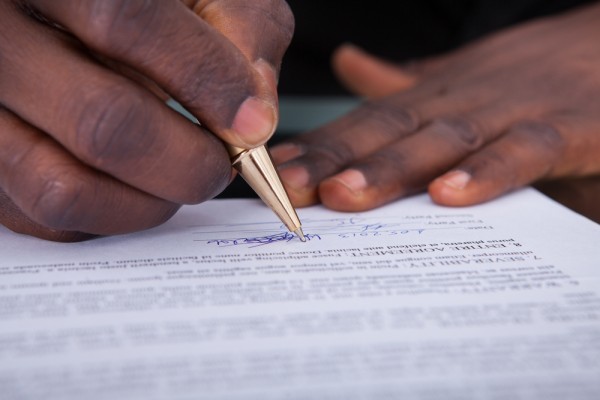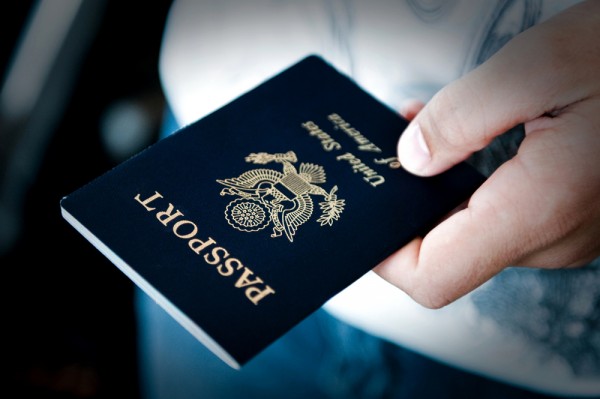Maryland Adoption Guide
Welcome, Marylanders! This Maryland guide was written to provide you with a single place to find information about adoption in Maryland. It will walk you through everything from Maryland laws that will impact your adoption to reviews of adoption service providers in Maryland.
We’ve divided this Maryland guide into five parts:
first, general information about adopting in Maryland, then sections dedicated to Maryland domestic infant adoption (starting in Slide 6) Maryland foster adoption (Slide 19), international adoption (Slide 29), and Maryland stepparent adoption (Slide 33). And don’t miss our slide filled with links to helpful Maryland adoption resources (Slide 36).Ma
Are you considering growing your family through domestic infant adoption? Click here for a free and confidential consultation with an adoption professional.

1. Please note:
Although care has been taken to ensure the accuracy, completeness, and reliability of the information provided in this slideshow guide, you should not rely on it to make decisions. Instead, you should rely on licensed professionals in making decisions relative to adoption.
The information in this guide is subject to change without notice. Adoption.com is not responsible for the consequences of relying on this information. In no event shall Adoption.com be liable for any direct, indirect, special, or incidental damage resulting from, arising out of, or in connection with the use of this information.

2. Did You Know?
Famous home run slugger Babe Ruth was born in Maryland. Assateague Island, which sits off the coast of Maryland, boasts some of the most beautiful wild ponies in the nation.

3. Adoption in Maryland at a Glance
Kids available for adoption in 2012: 10,900
Foster adoptions completed in 2012: 610
International adoptions completed in 2012: 195
Other adoptions completed in 2012: 1,994

4. Can I Adopt in Maryland?
Adoption requirements in Maryland:
Age:There is no age requirement in Maryland, but courts generally want to ensure that hopeful adoptive parents are mature enough to raise a child
Marital Status: Can be single or married. Need to be married long enough to establish a stable relationship. If single, you need to prove you are physically/mentally capable of raising a child and have a strong support system to help you.
Housing: You may rent or own a house, but you need a space for the adopted child.
Work: Stable enough to provide for the family’s needs.
Personality: Must be energetic, as well as mentally and physically capable of raising a family.
Experience: Previous experience is not required, but Maryland asks for three professional references regarding your parenting skills.
Other Requirements: In the state of Maryland, applicants must complete a minimum of 27 hours of preservice training.
DIQUALIFYING CRIMES: Crimes serious enough to affect a child’s safety. Child abuse/neglect or spousal abuse.
SOURCE: Childwelfare.gov

5. Developing a Support System
It’s essential to have a good network of family, friends, and neighbors to support you through your adoption process.
It’s also important to connect with other adoptive parents. You can begin making these connections in our adoption forums. You may also want to consider joining a support group for adoptive parents.

6. Domestic Infant Adoption In Maryland
Before you get started, click here to learn more about the overall process of adopting an infant in the United States. Then, because laws and processes vary from state to state, come back to get the details about adoption in Maryland.

7. Domestic Infant Adoption: Get Professional Help
In Maryland you can complete your adoption through an adoption agency or an adoption attorney. Whichever route you choose to go with, make sure the agency or attorney holds a valid license.
It is illegal in Maryland for any individual or organization, other than an agency approved by the Social Services administration, to accept payment for providing adoption services.
You can browse and read reviews about adoption service providers in Maryland here.
For more information about picking an adoption agency, learn about the Top Fifteen Things to Look for In An Adoption Agency.
SOURCE: MD FAMILY LAW § 5-362

9. Domestic Infant Adoption: Complete a Home Study
Regardless of the route you choose (private adoption through an adoption attorney or adoption through an agency), you will need to complete an adoption home study.
Your home study social worker’s job is to help educate you about adoption and ensure that you (and your partner, if applicable) meet the requirements outlined on Slide Four.
Click here to learn more about the Home Study process.

10. Domestic Infant Adoption: Spread the Word
Maryland adoption law limits how much advertising prospective adoptive parents, as well as birth parents, can publish on their own behalf regarding their desire to adopt. Licensed agencies and lawyers may also advertise adoption-related services. It is illegal for any other entity to publish advertisements for adoption-related services.
One of the most important things you can do while waiting for an adoption match is to let everyone know about your hope to adopt. Many adoption connections are made through word-of-mouth referrals.

11. Domestic Infant Adoption: Parent Profiles
If advertising is allowed in you state, creating a Parent Profile is a great way to get the word out about your adoption hopes. Creating a profile on Adoption.com Parent Profiles allows you to easily share your story with those considering placing their child for adoption. Features like videos and photos, posts, Pinterest-like favorites, and recommendations and endorsements make it easy to create a profile as unique as you are, increasing the likelihood that you will stand out and connect with that right person.
Rich communication options like video chat and instant messaging make connecting easy. A mobile-responsive design means that you will never be out of reach.
What’s more, Adoption.com receives over 650,000 monthly visits, which means your profile will receive unparalleled exposure. You can even view and monitor your progress through a detailed statistics page.
Ready to get started? Visit our Parent Profiles page.

12. Domestic Infant Adoption: Relinquishment
In Maryland, consent from the birth mother and father is required to release parental control over a child.
This consent can be given at any time after the child is born. A licensed attorney helps negotiate with the birth parents and the hopeful adoptive parents. In the event that a birth parent files a notice of objection to the termination of their rights, courts may decide whether or not to involuntarily terminate their rights based on the following findings:
-The parents have no custody over the child for at least one year
-The birth parent(s) abuse the child
-The birth parent(s) ignore the child’s needs when they had the opportunity to care for them
-The court finds that the adoptee “has significant ties to and feelings for the petitioner.”
MD Family Law §5–3B–22
In all the above situations, a court of law in the state of Maryland decides when to terminate the birth parents rights without their consent. These situations are highly complex, and almost always require more than one of the above mentioned findings. Hopeful adoptive parents need to consult an adoption attorney if this situation arises. Only children ages 10 and up in Maryland must give consent to an adoption. If parental rights are terminated but the child remains in the care of an adoption agency, that specific agency will have to terminate their rights as well before the adoption can become final.
For more information, visit ChildWelfare.gov under the Maryland section.
After the consent is legally filed, birth parents have 30 days to revoke for any reason. After this 30 day period, the termination of rights becomes irrevocable.
SOURCE: MD Law §5-641
FindLaw.com
ChildWelfare.gov

13. Domestic Infant Adoption: Birth Father Rights
In Maryland, a child born to married parents is considered both the mother and father’s child. However, a child born to unmarried parents is considered to be just the mother’s child. The child is considered the father’s only if the father completes any one of the following:
– A court paternity hearing where he is decided to be the actual father
– Acknowledges the fact of fatherhood in writing
– Publicly recognizes the child as his own
– Chooses to marry the mother after the birth of the child, and acknowledges himself, orally or in writing, as the father
– The mother of the child names the father and the father does not sign a denial of paternity
– DNA testing
MD Family Law § 5-306
Affidavit of Parentage
An Affidavit of Parentage means the father’s name is added to the child’s birth certificate. Through signing, both parents agree that the father is a biological and legal parent of the child. After both parents sign, both parties have 60 days to contest the affidavit in writing. After the 60-day period, the affidavit can be challenged only on the basis of fraud, duress, or mistake of fact.
Some states provide a putative father registry, which requires that unmarried fathers be contacted before an adoption can be finalized. While Maryland provides no putative father registry, both presumed fathers and legal fathers must be contacted under law before the adoption goes final. In the event that the birth father cannot be located, courts must make a good faith effort to find the birth father and notify him of the petition to adopt his child. If, after the father has been notified, no response is received within 30 days of the notification, the court sees this as a voluntary termination of parental rights. If the father cannot be located after the 30 day period and the court has made sincere efforts to find the father, the court also sees this as voluntarily termination of birth father rights.
SOURCE:Divorcenet.com
Childwelfare.gov
MD Family Law § 5-316

14. Domestic Infant Adoption: Laws about Birth Parent Expenses
Hopeful adoptive parents and/or an adoption agency may provide financial support for expectant mothers. There are, however, laws governing such support.
Permitted Expenses: Reasonable hospital, medical, or legal fees are permitted. Limited living expenses may also be provided if the birth mother brings a note from the doctor explaining why she could not work during/after the pregnancy.
Banned Expenses: This section is not addressed in the Maryland statues reviewed.
SOURCE: Childwelfare.gov

15. Domestic Infant Adoption: Post-Adoption Contact Agreements
Post-adoption contact agreements regulate the amount of contact between birth and adoptive families after the adoption.
In Maryland law, agreements in writing are enforceable by law as long as they’re in the adoptee’s best interest. Courts modify an agreement if either the adoptee’s biological parents or the adoptive parents appeal to the court, and if the modification is in the adoptee’s best interest. In the case of arguments over contact agreements, courts may order mediation to try to solve the dispute.

16. Domestic Infant Adoption: Adopting in Maryland from Out of State
It’s always possible to adopt a child from Maryland, even if you live in a different state.
If you are adopting a child from a state different from the one in which you reside, the Interstate Compact for the Placement of Children (ICPC) was adopted in the 1960s to provide for oversight and protection of children placed for foster care or adoption between states.
If you are adopting a child from another state, you will need to receive permission from the ICPC office in the state where the child is from. Your agency or attorney will send the office copies of your home study and some other paperwork. The ICPC will need to approve your packet before you can bring your child home.
Read more about the ICPC here.

17. Domestic Infant Adoption: Traveling to Maryland from Out of State
There are many sights to see when visiting Maryland. For history buffs, Maryland offers many civil war stomping grounds, such as the famous Antietam Battlefield.
If you’re into popular attractions, stop by Baltimore’s Inner Harbor, home to the National Aquarium, Hard Rock Café, Oriole Park, and plenty of other restaurants and attractions.
Finally, visit one of the many parks inside Maryland, such as the 184-mile C&O Canal, Assateague State Park (home to the exotic wild ponies), or the beautiful Greenbrier State Park.

18. Foster Adoption in Maryland
Before you get started, click here to familiarize yourself with the overall process of adopting children through foster care. Then, because laws and processes vary from state to state, come back here to get the details about foster adoption in Maryland.

19. Foster Adoption: Children Available for Foster Adoption in Maryland
According to the Maryland Department of Human Resources, there are 9,074 children in the foster care system.
You can find a photolisting of waiting children here.

20. Foster Adoption: Get Professional Help
In Maryland, licensed agencies as well as the Department of Human Resources help complete foster care adoptions.
To find adoption agencies in Maryland and to read reviews, check out Adoption.com’s Reviews Page for Maryland.
You will still need to complete a home study as part of this process. If you are adopting through a licensed agency, most cover the cost of a foster care adoption home study.

21. Becoming Part of the Foster Care System
In Maryland, a child can be placed with hopeful adoptive parents by the Department of Human Resources before their parents’ rights have been terminated. This is called a ‘legal risk’ placement, meaning that the child may return to live with their biological parents.
Maryland makes every effort to return children to members of their biological family, but when this is not possible, the state tries to find the best stable environment for the child. These placements are not made unless the agency responsible for the child is actively pursuing the termination of his/her birth parents’ rights.
Agencies petition to finalize foster adoptions if the foster parent is still the parent of choice after six months of the child remaining in the adoptive parent’s care.
SOURCE:
MD Department of Human Resources

22. Post Adoption Contact Agreements
Post-adoption contact agreements determine how much contact the birth family and the adopted family have after the adoption.
In Maryland law, courts must enforce post-adoption contact agreements as long as the enforcement of said agreements is in the adoptee’s best interest.
Courts may modify agreements if either the adoptee’s biological parents or the adoptive parents appeal to the court and if the modification is in the adoptee’s best interest. In case of arguments over contact agreements, courts may order mediation to try to solve the dispute. Broken contact agreements cannot nullify the adoption.
SOURCE: Schweitzerlaw.net

23. Finalization
Foster adoptions can be finalized after the child spends six months within the adoptive home. At the end of this period, a social worker visits the home to ensure that the child is well adjusted and that the parents have provided for all of the child’s needs. After this visit, hopeful adoptive families get approved by a judge. If the birth parents rights have been terminated the adoption becomes final.

24. Adoption Assistance
In order to qualify for adoption subsidies in Maryland, certain requirements must be met to declare that a child cannot be placed without financial assistance:
1. The child is at least 6, but not yet 18 years old
2. The child’s race or ethnic background, along with other special needs, barred adoptive placement without subsidy. (being a part of a minority alone does not qualify an individual)
3. The child has a physical or mental disability, or the chance of developing one
4. The child has a emotional disturbance or the risk of developing one
5. The child belongs to a sibling group being placed together
Monthly rates are entered into by negotiation. The monthly rate in the state of Maryland is $835 for ages 0-11, $850 for ages 12-20. Anything beyond this limit will need to be approved by the courts.
There is an exception for foster families who adopt medically fragile children. The monthly limit in this case is $2,000. Adoption assistance can continue until a child reaches his/her 21st birthday, as long as the child remains in school or has a disability that prevents self-sufficiency.
For more information please visit
NACAC.org
NACAC.org/adoptionsubsidy
DHR adoption assistance
DHR.state.md.us

25. Foster Adoption: Adopting in Maryland from Out of State
It’s always possible to adopt a child from Maryland, even if you live in a different state.
If you are adopting a child from a state different from the one in which you reside, the Interstate Compact for the Placement of Children (ICPC) was adopted in the 1960s to provide for oversight and protection of children placed for foster care or adoption between states.
If you are adopting a child from another state, you will need to receive permission from the ICPC office in the state where the child is from. Your agency or attorney will send the office copies of your home study and some other paperwork. The ICPC will need to approve your packet before you can bring your child home.
Read more about the ICPC here.
For information about the ICPC in Maryland, click here.

26. Foster Adoption: Traveling to Maryland from Out of State
Hotel costs in Maryland average between $75 and $100 a night. Spots closer to Baltimore or Washington D.C. cost more than hotels on the west side of the state.

27. International Adoption in Maryland
Before you get started, click here to familiarize yourself with the overall process of international adoption. Then, because laws and processes vary from state to state, come back here to get the details about international adoption in Maryland.

28. International Adoption: Photolisting
There are millions of beautiful children across the world who are hoping to find a forever family.
Click here to meet some of them through our Photolisting.

29. International Adoption: Get Professional Help
With international adoptions, your only choice is to complete your adoption through an agency.
Because of the Universal Accreditation Act, all adoption agencies completing international adoptions are required to be credentialed according to federal standards. Make sure to check with any agency before working with them to ensure they have this accreditation in place!
In selecting an international adoption agency, there are Four Essential Criteria you should probably consider. Click here to browse through reviews of adoption agencies in Maryland.
In order to be approved to adopt internationally, you will need to complete an international adoption-specific home study.

30. International Adoption: Post-Adoption Requirements
Maryland law requires adoptive parents to petition the court for validation of a foreign adoption.
Before entering the court, the adopted child receives an IR-3 visa. Through the IR-3 visa, the court recognizes that the adoption was legal in both the child’s home country and in the United States. The end goal is to gain a Certificate of Foreign Birth.
You will also need to request a U.S. birth certificate for your child.
Read more about post-adoption requirements here:
//adoption.com/wiki/Maryland#Application_for_a_U.S._Birth_Certificate
//www.uscis.gov/adoption/bringing-your-internationally-adopted-child-united-states/your-new-childs-immigrant-visa

31. Stepparent Adoption in Maryland
Before you get started, click here to familiarize yourself with the overall process of stepparent adoption. Then, because laws and processes vary from state to state, come back here to get the details about stepparent adoption in Maryland.

32. Stepparent Adoption: Terminating Parental Rights
In order to adopt your spouse’s child in Maryland, parental rights must be terminated.
In cases where termination of parental rights is unlikely, it’s best to consult a Maryland custody lawyer to know how to proceed. There are two options lawyers take when trying to prove that terminating parental rights involuntarily is in the child’s best interest:
Abandonment: Showing the courts that the absent parent intentionally ignores their child, or that they ignore their legal responsibilities towards the child, the court will likely release parental rights to you
Presumed Father: Showing the courts that the legal father is actually illegal under the definitions of a father means that the court allows you to precede without consent
SOURCE: Jimeno & Gray Law

33. Stepparent Adoption: Petitioning to Adopt
After the termination of parental rights, hopeful adoptive parents must attend a court hearing in order to make the adoption official.
The hopeful adoptive parents will testify about their bond with the stepchild, the stability of their marriage and home, and their desire to be the legal guardians to the child. The court has the final say on whether or not to allow the adoption to happen.
You will generally not be required to complete a background check or home study as part of the stepparent adoption process.

34. Adoption Resources
Link to Adoption Forums
Link to Maryland Wiki laws
Link to Maryland Parent Profiles
Adoption Stories

35. Works Cited
Childwelfare.gov
MD Law §5-641
FindLaw.com
Divorcenet.com
AdoptionsTogether.org
Schweitzerlaw.net
NACAC.org
Uscis.gov/adoption








